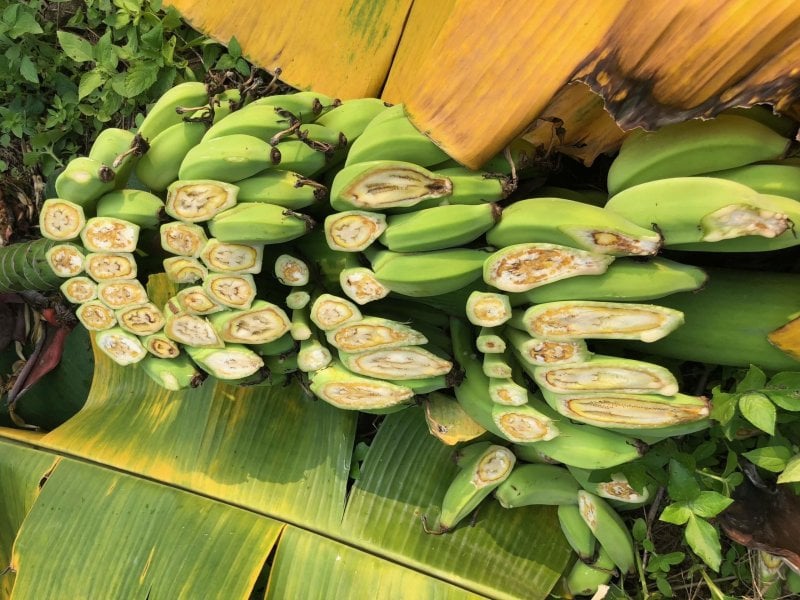My attention has been drawn to an article I recently read in the digital Genetic Literacy Project newsletter authored by award winning Ugandan journalist, Christopher Bendana.
It quoted the economist Enoch Kikulwe of Biodiversity International saying Ugandan banana farmers face heavy financial losses if they do not quickly adopt genetically modified banana varieties that can resist the devastating banana bacterial wilt disease (BBWD).
…
He said: “Farmers growing one hectare of GM bananas would likely earn an extra $300 per year, while those who do not adopt the improved varieties will lose some $460 annually to the BBWD.”
Banana is the most consumed food crop in Uganda and its cost price has steadily risen over the years mostly due to the fact that its production is declining while at the same time Uganda’s population has grown from 6.8 million at independence in 1962 to the present 42.7 million. Economist Kikulwe therefore has a point.
The government which stands for promoting food security for a population whose fertility rate of 5.4 per cent, one of the top three highest in the world must act quickly.
[Uganda’s National Agricultural Research Organization] has in the recent years developed BBWD resistant banana varieties which the farmers can grow if the government puts in place a regulatory law to govern GM technology. Parliament has twice passed the law but it is taking too long to get the President’s signature of approval.






























